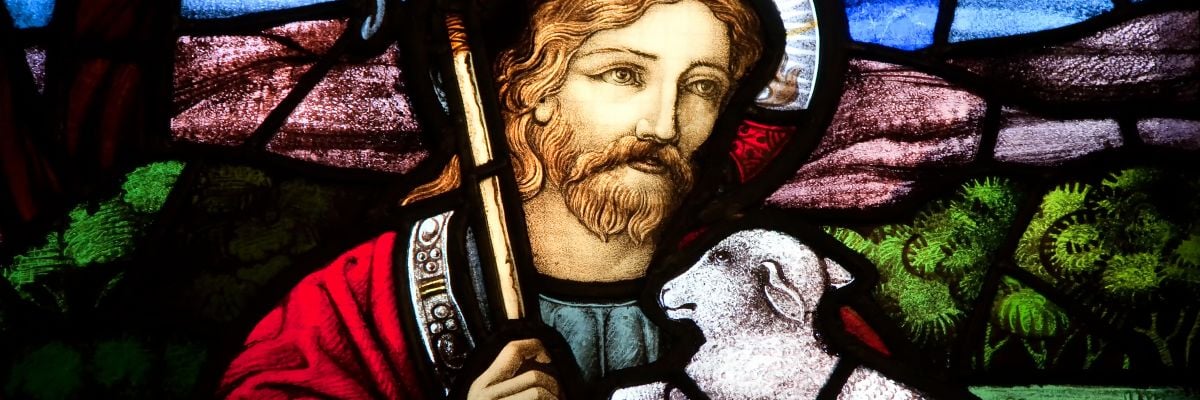
Karlo Broussard points to the institution narrative in the Gospel of Luke, and the original Greek wording of “Do this in memory of me,” as signs that Christ offers a sacrifice during the Last Supper that he wishes us to continue offering in the mass.
Transcript:
Host: Go to Joshua in Palm Beach, Florida, listening on EWTN radio. Joshua, you are on with Karlo Broussard.
Caller: Hi. Nice to call, thank you for all of your ministry.
Host: Well, thank you. What’s your question for Karlo?
Caller: My question is: where is the element of the sacrifice of Mass in the Bible?
Karlo: Okay, so it’s the element of the sacrifice of the Mass in the Bible. Okay, very good question, yeah. So what you want to do is you want to look at the Last Supper, obviously, in the institution narratives, and a key text there is whenever Jesus tells the Apostles “Do this in memory of me.” Right? The Greek word there for “do this,” Joshua, is “poieo.” The root word there is “poieo,” which literally means “to offer this.” And it’s found in various places in the Old Testament.
For example, in Exodus 29:28, Joshua, we read: “Now this is what you shall offer upon the altar: two lambs a year old, day-by-day continually.” Moses is giving Aaron, the priest–the priest, right?– instructions on how to offer sacrifice. And in the Greek version of Exodus 29, namely, the Greek Septuagint, the Greek word there for “offer” is “poiesis,” which is a derivative of “poieo,” which literally means “to offer sacrifice.” We also find it in Leviticus 9:7 and in Psalm 66:15, all of which use this Greek word in the Greek version of the Old Testament in reference to offering sacrifice.
So we come back to the institution narrative, and here’s Jesus, right after he says, “This is my body, given up; this is my blood, shed for you;” which is in and of itself sacrificial language. He commands the Apostles to “poieo,” to offer this, which would suggest to us that Jesus understands what he has just done as a sacrifice.
And here’s the key, Joshua: as we know, as Bible Christians, right, we love Jesus, we love the Bible, there’s only one sacrifice of infinite value. So the question is: what sacrifice is Jesus making present there at the Last Supper in the upper room? It can’t be some other sacrifice, because the whole point of Jesus’s sacrifice is saying, “all of those other sacrifices are no longer worth anything,” right? So the only sacrifice that he could be making present is his sacrifice, and this is why he says, “The blood which shall be shed for the forgiveness of sins;” which also calls to mind Old Testament sacrifices, namely the sacrifice of atonement, or the atonement sacrifices, where blood is poured out at the bottom of the altar for the atonement of sin. And here’s Jesus, using that very same language: blood being poured out for the forgiveness of sins, calling to mind the sacrificial themes.
Thus, in light of these clues and other clues, we conclude that what Jesus was offering, Joshua, at the Last Supper was his very own body and blood–and that would presuppose the real presence– which leads to the understanding that it is his sacrifice made present.
So that’s just a couple of clues, but I actually did an article at Catholic.com, you can check it out. Just type in the search engine “Sacrifice of the Mass,” and it should pop up. I can’t remember the title of my own article, but I wrote an article where I asked the question, “Was the Last Supper a Sacrifice?” And I give several different clues that it was indeed a sacrifice, but in particular his sacrifice. So I don’t know if that’s helpful for you, Joshua, what do you think?
Caller: It’s very helpful, thank you so much.



